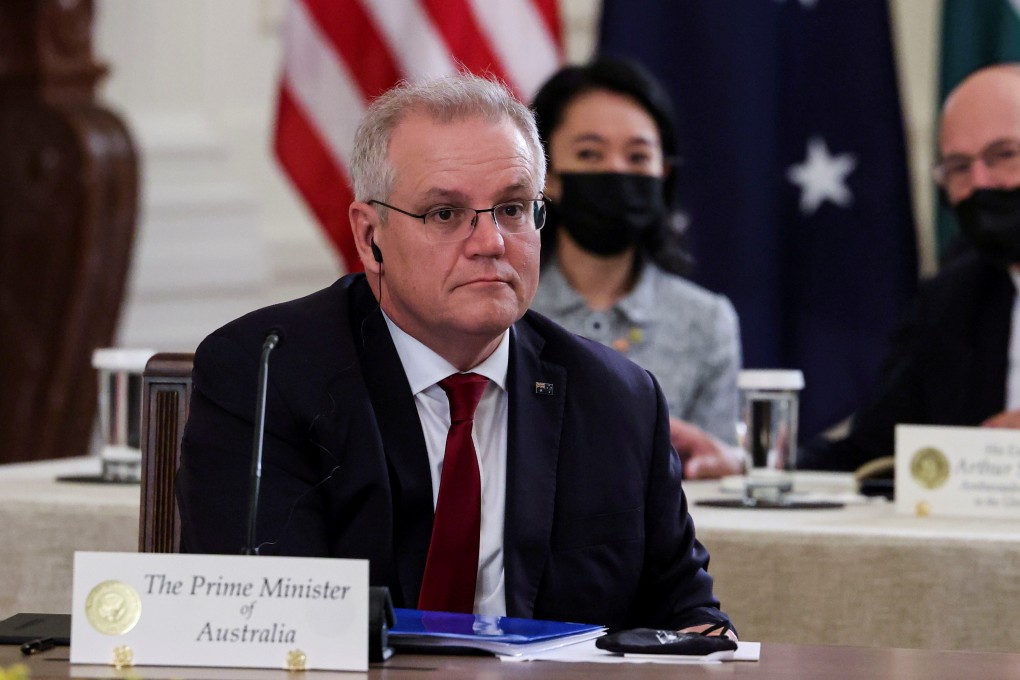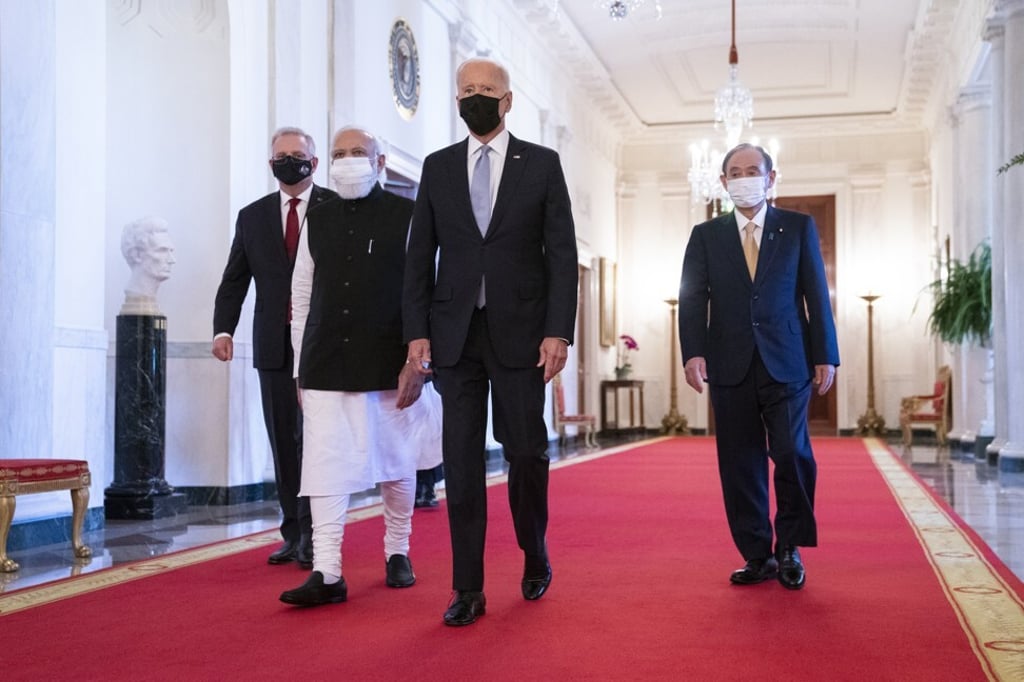Editorial | Australia is playing a dangerous game with nuclear submarines
- Canberra’s deal with the United Kingdom and the United States to counter China will only serve to destabilise the region, including the volatile Korean peninsula

Top of the agenda for Australian Prime Minister Scott Morrison’s visit to the United States was to lock in backing for two security decisions that send a message that his government sees the world through Anglo-American eyes – entering a defence alliance with the United Kingdom and United States known as Aukus, and nuclearising Australia’s submarine defence posture.
In that respect a meeting of the Quad nations, a security alliance between the US, Japan, India and Australia targeted at containment of China, came ahead of a speech to the UN General Assembly.
One aim was to put the best face on Australia’s decision to write off a A$2 billion (US$1.45 billion) investment in a A$92 billion French-built conventional submarine project in favour of an American nuclear-powered, but not armed, alternative, plus long-range Tomahawk cruise missiles.
Morrison claimed bipartisan support from the US Congress and the leaders of Japan and India. To India and France, both nuclear submarine powers in their own right, the question remains: why does the United States not share technology with them?
Ultimately, the broader question is about the impact on China-Australia relations, already fraught with security issues and trade sanctions.

